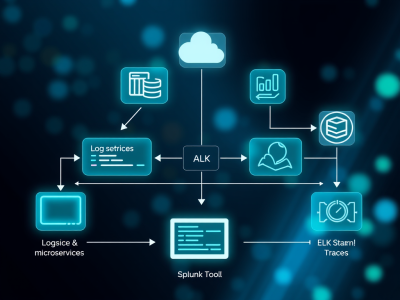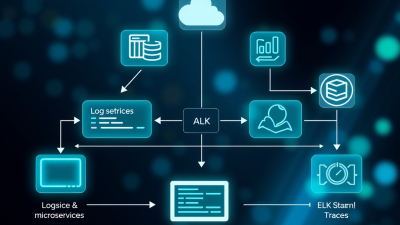Enterprise Resource Planning (ERP) systems are often hailed as a business game-changer, streamlining operations, connecting departments, and delivering real-time insights. While they’re essential for large corporations, the story can be very different for small businesses. For many small enterprises, investing in ERP software can be both a blessing and a curse, bringing new challenges that sometimes outweigh the benefits.
So, do ERP systems truly deliver value for small businesses, or are they just too complex, costly, and cumbersome? Let’s explore the pros, cons, and realities of ERP systems in a small business context.
The Potential Upsides: Why Small Businesses Consider ERPs
An ERP system is marketed as an all-in-one solution, centralising data across functions like finance, HR, sales, and inventory. Here’s what that can mean for small businesses:
- Enhanced Efficiency: With a unified ERP system, small businesses can replace multiple standalone applications. This integration can streamline operations, saving time and reducing repetitive data entry. Instead of juggling different software for each department, a small business can use one tool to manage everything.
- Improved Data Accuracy: ERPs create a single source of truth, where data only needs to be entered once and can be accessed across departments. This helps eliminate discrepancies and boosts data accuracy, which is especially helpful in managing inventory or tracking sales performance.
- Better Decision-Making: Real-time data and reporting features empower business owners to make informed decisions. ERP systems provide valuable insights into cash flow, productivity, and operational costs, which can guide small businesses in optimising resources and planning for growth.
- Scalability for Growth: For small businesses looking to expand, ERPs offer a scalable solution that can grow with them. Rather than adding new systems or overhauling software, an ERP can handle the added data and processes of a growing business.
Despite these potential benefits, implementing ERP software may present several challenges, especially for smaller organisations that may not have the resources to handle these complexities.
The Downsides: Why ERPs Might Not Be Worth It for Small Businesses
While the advantages are clear, ERPs aren’t always a perfect fit. Small businesses often face unique obstacles when adopting these systems:
- High Costs and Hidden Fees: ERPs are notoriously expensive, with upfront costs for licenses, training, and customisation. Small businesses with limited budgets may find it challenging to afford the initial investment. Plus, there are often ongoing costs for updates, technical support, and additional user licenses that can quickly add up.
- Complex Setup and Long Implementation: Getting an ERP up and running can be a lengthy, complex process that requires planning, training, and often, significant changes to existing workflows. This is no small task for a small business, where resources are already stretched thin. Implementation delays can disrupt operations and impact productivity during the transition.
- Learning Curve and Resistance to Change: ERPs often require staff to adopt new processes and systems, which can be a challenge for small teams accustomed to doing things in a certain way. Training employees to use a complex ERP can be time-consuming and might lead to frustration, particularly if some features aren’t even needed in a small business context.
- Overloaded with Features: Many ERPs are designed with larger enterprises in mind, loaded with features and functionalities that may not be relevant to smaller operations. This feature overload can make the system difficult to use and sometimes results in small businesses only using a fraction of the ERP’s capabilities.
- Risk of Dependency on One System: Relying on an ERP for all business functions means that any system downtime or technical issue can bring operations to a halt. For small businesses that can’t afford prolonged downtime, this dependency is a risk that needs careful consideration.
Weighing the Benefits Against the Costs
For many small businesses, the decision to adopt an ERP system is a difficult one. On one hand, the potential for efficiency gains, data accuracy, and integrated operations is tempting. But on the other hand, the costs, complexity, and steep learning curve can be overwhelming.
For small businesses, the value of an ERP system often depends on their growth ambitions, budget, and specific needs. For example:
- Stable or Low-Growth Businesses: For businesses with simple workflows and no immediate plans to expand, an ERP might not be necessary. The costs and complexities might outweigh the benefits, making it more sensible to stick with existing software solutions or explore smaller, industry-specific systems.
- Rapidly Growing Businesses: If a small business is scaling quickly and outgrowing its current systems, an ERP might be worth the investment. In this case, choosing an ERP with a focus on scalability and flexibility could pay off in the long run.
Alternatives to ERP Systems for Small Businesses
Not all small businesses need a full ERP system to achieve the benefits of data integration and efficiency. Here are a few alternatives that may offer similar advantages with fewer drawbacks:
- Industry-Specific Software: Many industries offer targeted software solutions with features tailored to their unique needs, whether it’s retail POS systems, inventory management tools, or customer relationship management software. These can often be more affordable and easier to implement than a full ERP.
- Cloud-Based Tools: Small businesses can often benefit from affordable, cloud-based tools that offer integration between departments. Many accounting, sales, and project management tools have strong integration features and work well in tandem, offering a lighter and more flexible solution.
- Customised Solutions: For some small businesses, using a few customised tools can be more efficient than adopting an ERP. By tailoring systems to fit their exact needs, businesses can avoid the “feature overload” of ERP systems and keep costs down.
Final Verdict: Are ERPs Worth It for Small Businesses?
There’s no one-size-fits-all answer when it comes to ERP systems for small businesses. For some, the benefits can justify the costs, especially if the business is growing and ready for a more streamlined solution. But for others, ERPs may create more headaches than they’re worth.
For small businesses considering an ERP, it’s important to weigh the potential gains against the real costs and complexities. In many cases, industry-specific or cloud-based solutions can deliver similar benefits with less risk and fewer growing pains. The key is to find a system that genuinely aligns with the business’s needs and growth plans. After all, technology should make life easier—not create new problems to solve.













Comments